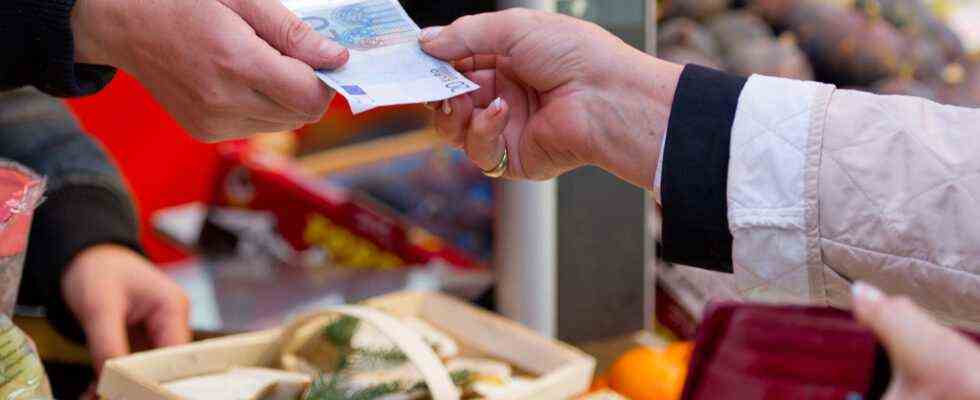As of: 25.09.2021 1:42 p.m.
3.9 percent price increase in August – the alarm bells rang among consumers. Economists, on the other hand, urge calm. From their point of view, there is not much to suggest that Germany is running into permanent inflation.
The economists of leading financial institutions in Germany do not currently see the increased risk of a prolonged or even out of control price spiral. “Inflation went into high gear in 2021, but it will probably run out of air again in 2022,” said Katharina Utermöhl, economist at the Allianz Group, in a survey by the dpa news agency.
Marc Schattenberg of Deutsche Bank Research said: “The currently observable increased monthly inflation rates are largely determined by temporary influences.” He expects that inflation in the euro area will level off around the target of almost two percent set by the European Central Bank in the next few years.
“Doesn’t speak much for long-term inflation”
Veronika Grimm is also assuming a normalization of the economy, although the price-driving effects such as the shortage of microchips or the high raw material prices will not disappear as quickly as hoped. “As long as wage settlements remain moderate, there isn’t much to suggest that we run into permanent inflation,” she said. “In some areas, wage increases may well occur, for example due to the shortage of skilled workers, but the temporarily high inflation rates should not be taken up one-on-one in collective bargaining.”
In August, the inflation rate in Germany was 3.9 percent and was therefore significantly higher. However, this is also due to base and special effects because inflation was particularly low last year at 0.5 percent, primarily due to the effects of the corona pandemic. Among other things, the temporarily reduced VAT alone ensured a lower price increase.
In order to get into a galloping price surge, there must be further effects, such as a price-wage spiral, said Utermöhl. “This is not in sight,” she emphasized. “I currently see no reason why a visit to a restaurant should cost more in the medium term.”
Economists expect three percent economic growth
Economists expect German economic output to grow by a good three percent for the current year. “In the next year we expect an even stronger growth of 4.3 percent,” said Schattenberg. “Demand from private households is already brisk, but there is still pent-up purchasing power,” emphasized the expert from Deutsche Bank Research. “We can also see that short-time work has fallen sharply over the summer.”
Overall, the labor market should have developed positively in September, said Schattenberg. The number of unemployed could fall again by around 110,000, seasonally adjusted by 30,000. The Federal Employment Agency will announce its September figures next Thursday (September 30th). In August, around 2.58 million people nationwide were out of work. The unemployment rate was 5.6 percent.
Fritzi Köhler-Geib, chief economist at the state-owned banking group KfW, also anticipates positive developments on the labor market. “In 2022, the strong recovery on the labor market will likely be fully reflected in the figures: According to our forecast, we will again have half a million more people in employment than this year, and the unemployment rate is likely to be considerably lower at 5.3 percent”, she stressed. It could already fall to 5.7 percent this year – but only if there are no further restrictions, at least for those who have been vaccinated, in the wake of the corona pandemic.
The lack of immigration increases the shortage of skilled workers
Veronika Grimm also sees limiting factors for the economy in the labor market – for example in supplying companies with specialists. “Immigration was almost completely absent during the Corona crisis,” she said, referring to the international exchange that practically came to a standstill during the Corona pandemic. This has led to a labor shortage in some industries such as the hotel and restaurant industry.
Employees have also reoriented themselves, for example in the direction of retail, and are therefore no longer available in the hospitality industry. “The employers will also have to improve their wages,” stressed Grimm with a view to possibly better pay and working conditions.
With regard to economic performance, the Nuremberg professor does not believe that there will be a complete recovery from the consequences of the corona pandemic quickly. “I think that in the service sector we will keep a kind of 90 percent boom,” she said.
The federal and state governments collect more taxes
Philipp Eckstein, ARD Berlin, September 21, 2021 2:18 p.m.

